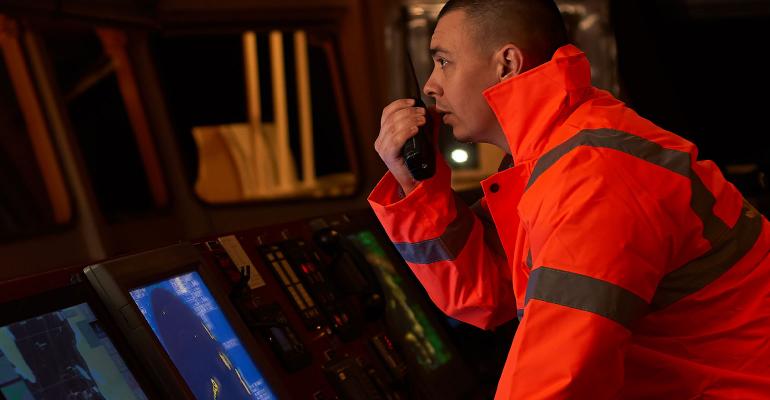The importance of the men and women on board ships cannot be underestimated as they are a crucial part of the system that runs the global economy. Seafarers’ lives are challenging thanks to the nature of their jobs, but that doesn’t mean that seafarers’ situations can’t be improved upon. Last year, Marine Insight identified health issues as one of the reasons why seafarers might choose to leave the industry, and it is understandable why.
“Erratic sleeping schedule, excessive working stress, unfriendly environment, unavailability of fresh food, and inadequate medical facilities drastically affect seafarers’ health”, the article reads.
Understanding the risks and challenges that come with a life on board is, therefore, essential when planning a wellness programme. Dr. Rafael Lefkowitz, Assistant Professor of Internal Medicine at Yale University, has demonstrated in his webinar session What Should You Consider When Developing Wellness Strategy for Your Crews and Why It Matters that it is not enough to react on a case-by-case basis. A comprehensive wellness strategy needs general data collection and analysis of all seafarer experiences in order to identify the areas that need improvement.
Dr. Lefkowitz now responds to the questions we did not get to cover on the day.
Q: What would be the 5 most important action to take right now in order to improve wellness?
A: First, I recommend engaging seafarers as a community to understand their wellness needs. This will tell you what you need to do.
Q: In terms of coming up with health and wellness programs for the seafarers, what do you suggest to do and how do we encourage the seafarers to be part of it?
A: Include wellness and health, especially mental health, in maritime training courses and academies.
Q: Can you say more about suicides? Do you see a rise in the number of suicides?
A: There is not enough data available to answer this. I would encourage all registries, shipping companies, and facilities who treat seafarers to be open about rates of depression and suicide so that we can understand the problem more fully and work together towards prevention.
Q: What evidence is there that good crew wellness has a positive financial return for ship owners?
A: The answer to this question could be achieved by analysing data on costs of illness and injury (direct and indirect). I would be very happy to assist in such a project.
Q: In the mental health screening you conducted and the seafarers you screened, do you know what the average time these seafarers were spending at sea versus their off watch time at home? Do you believe there is any direct correlation for seafarers doing longer spells onboard with those most likely to suffer depression?
A: This is an insightful question that will be answered in my new research project on seafarer mental health. If you would like to have your seafarers participate in this survey, please let me know.
Q: Pre-Employment Medical Exams (PEMEs) are key as gate keepers to ensure only healthy crew ship out, but PEME Clinics may be induced to clear a mariner for profit rather than good health with dental health issues ignored especially. How do we improve this risk factor?
A: PEME Clinics would be induced to clear healthier mariners, and seafarers would more readily volunteer critical health information, if it was well understood that employment would not be denied on these criteria. It requires a cultural change in the industry, to create an environment in which seafarers would be more open to disclose their conditions, obtain appropriate treatment, and be cleared for duty by appropriately trained and sensitive medical professionals. This requires engagement with medical doctors who also have an understanding of the work environment on ships – this is the job of occupational medicine physicians like myself.
An occupational medicine physician in a consulting role for shipping companies would ideally be suited to request and review pertinent medical records, advise treatments and accommodations if needed, and partner with the crew members and shipping company to ensure the work environment is appropriate and safe, with appropriate medications and other reasonable arrangements made as necessary. I think this is especially needed for mental health conditions: it is without question that depressed seafarers are working on vessels, and it would be prudent to not stigmatize such crew. This would encourage effective treatment, and a seafarer with depression on treatment is a better worker (and less likely to commit suicide) than a depressed seafarer who is afraid to seek treatment. Specifically, in terms of the dental issues, our research has also demonstrated that dental issues are one of the most frequent, and preventable, medical conditions occurring on vessels. If seafarers would have continuous dental healthcare available – at home, not just on their voyages – we would see a reduction in dental emergencies at sea.

